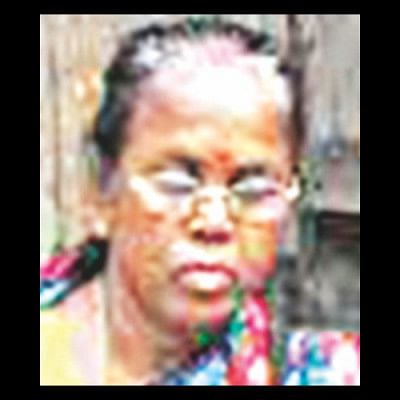Birangana waits for recognition

Biva Rani, 60, lives in her brother's tin-shed house in Upendranath Mandal near Torki Bandar of Barisal's Gournadi upazila. She works odd jobs, as a tailor, a weaver, a midwife sometimes, in order to look after herself and her disabled son Sagor.
Biva, whose husband left her after their son was born, is a birangana, a war heroine. She was attacked in a field by Pakistani soldiers in 1971. She was then a student of class-VIII. But despite applying two years ago to be recognised as a freedom fighter for her sacrifice in the Liberation War, her status is yet to be acknowledged. She doesn't know why.
“My husband left me in 1988. Since then I have floated on a turbulent sea,” she says, referring to the lifelong struggle of caring for Sagor, which means “sea”.
When asked about what happened in 1971, Biva at first stays silent. After some moments and a deep sigh, the narration begins.
She was living with four sisters and a brother in their family home. “In the month of Jyoishtha,” she says, referring to the Bengali month that corresponds to mid-May through to mid-June, “the occupation army of Pakistan together with local razakars and other collaborators set fire to the shops in the local market. My father, who was a small trader in Torki Bandar, tried to flee with his family to nearby Ramjanpur, in present-day Madaripur. But we became separated.”
Together with some other women, Biva took shelter in a sugarcane field. Unfortunately, local razakars found them and they were handed over to Pakistani soldiers. “We all became victims in that field,” Biva says, weeping. “They tortured us and I lost consciousness.”
When the army eventually left the area, Biva's father found her and brought her home; but their family shop was looted and burned. Biva was given in marriage to a local, Anukul Majumdar, in August 1971, not much more than two months later.
With more than 10 members of both families, Biva then started on the perilous and long journey by boat and on foot to reach India as refugees. Passing through Orakandi and Ramdia, as she recalls, they eventually arrived at Helencha in India's West Bengal.
“After liberation, we returned to a deserted, abandoned home,” she says. “Our son was born in 1988 and he was alright, but later he suffered a head injury. We took him to the Barisal Sher-e-Bangla Medical College Hospital and due to incorrect treatment, the nerves and muscles in his feet, along with his brain, were affected. He became both physically and mentally disabled. My husband left for India and since then I have had to face the fight for our survival alone.”
“I am old now,” Biva says. “I still have to care for my son. I had hoped to be recognised for the events that led to me being a victim of the Liberation War, so two years ago I filed an application online. Since then I've heard nothing.”
Moklesur Rahman, commander of the district's freedom fighter committee, says they have no information regarding the delay.

 For all latest news, follow The Daily Star's Google News channel.
For all latest news, follow The Daily Star's Google News channel. 






Comments